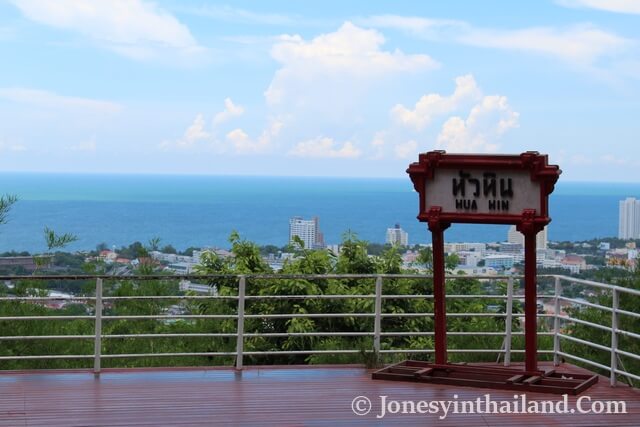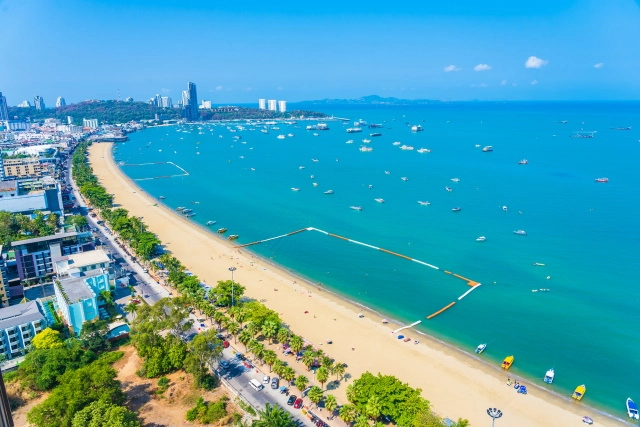Mosquitoes in Thailand—Everything You Need to Know
You’ve heard all the horror stories about tropical diseases and all that stuff right?
Those brave souls who went off on a SE Asian backpacking tour and came back minus limbs, teeth, and skin, having spent thousands of dollars on medical bills after a near-fatal insect bite or coming into contact with some other hideous and poisonous giant tropical creature on either land or sea.

OK maybe that’s taking things a bit far imagination-wise—but you probably know some would-be travellers who have yet to venture to tropical climes. They may be the type to harbour the odd fear or two about getting bitten by any flying, scurrying, or slithering creature while out in the humid tropics of the jungle.
And there may indeed be a fair few dangerous and poisonous creatures lurking in the oceans surrounding the Thai coast or in the jungle wilds—possibly even in the cities and populated areas—as there are in pretty much every country and continent on the planet.
Yet the vast majority of visitors to Thailand do actually manage to make it back home virtually unscathed and without having contracted any major diseases or getting fatally poisoned.
There are the mozzies to contend with in Thailand, though—mosquitoes, that is.
The humid and wet SE Asian climate does tend to attract more than its fair share of the reviled and aggressive insects. Rather annoyingly, mosquitoes are reportedly drawn in by the CO2 that comes with your every exhalation.
There is both good and bad news though when it comes to getting bitten by these creatures—they don’t actually go for everyone as they apparently favour different blood types. This means if you are not their type, they pretty much leave you alone aside from the odd nip here and there that doesn’t go too deep (a fact which your writer can attest to).
If you are the right blood though—and they know—it’s not unlikely they’ll end up nibbling away all night on any potentially exposed skin like feet, ankles, arms, and hands—even face—if you happen to be in the wrong area for long enough. It seems the people who do tend to get bitten more often get bitten quite badly, too—big, red, irritating bumps everywhere. Even worse is the fact that female mosquitoes can actually remember which blood they like and will come looking for it, as this study shows.
So it pays to know where the mozzies are likely to be most prevalent. It also pays to know how to deal with any bites—and of course having some idea about prevention or keeping them away will help no end.
Mosquito Bites and Prevalent Related Diseases in Thailand
Let’s first get clear on one thing—you don’t get diseases from every mosquito bite.
The majority of bites are harmless and merely leave a tiny red puncture mark on the skin (a swollen itchy one if you are unlucky, or dozens of them if they really like you). Mosquito-borne diseases in fact come from the bites of infected, disease-carrying insects (as some are—but this is generally not typical in urban areas).
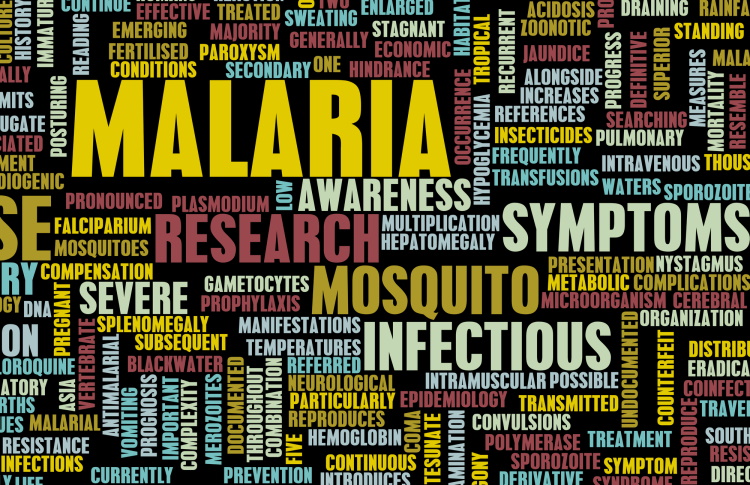
Some of the diseases linked to mosquitoes that can potentially be spread or lead to infection by bites include the following:
- Dengue fever
- Malaria
- Zika virus
- West Nile virus
- Chikungunya virus
You are not always guaranteed to become sick—even after a bite from an infected mosquito. Apparently it varies somewhat from person to person depending on factors like current health and any underlying conditions, weight, age, etc., with some people experiencing very mild, short-term illness.
Occasionally it can be a bit more severe and cause worse symptoms and illness, although this is rare. In some instances it can cause death—which is even rarer but it does happen infrequently.
The symptoms for infection are reported to vary from none at all to mild fever, or more severe, flu-like symptoms and a much more noticeable fever.
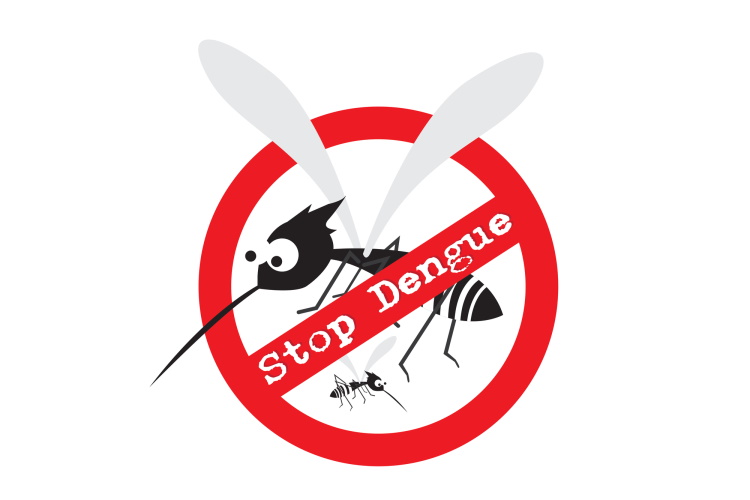
Dengue is definitely the most common infection in Thailand resulting from mosquito bites although the reported mortality rate is just 0.56 people per 100,000 according to this report.
Before you cancel your planned holiday to Thailand though, the thing to consider is this—there are different species of mosquitoes in different geographic locations. This means if they do spread diseases they are only likely to be ones prevalent to that region.
Where do Mosquitoes Live in Thailand?
It’s perhaps easier to find mosquitoes in the cities and other urban areas than most people would like. Yet this is nothing close to the numbers of them that you would experience in an area with habitat more natural to the dreaded insects.
Most varieties of mosquito actually tend to be found in forest and jungle regions—particularly those with marshes, tall grasses, and specifically still water.
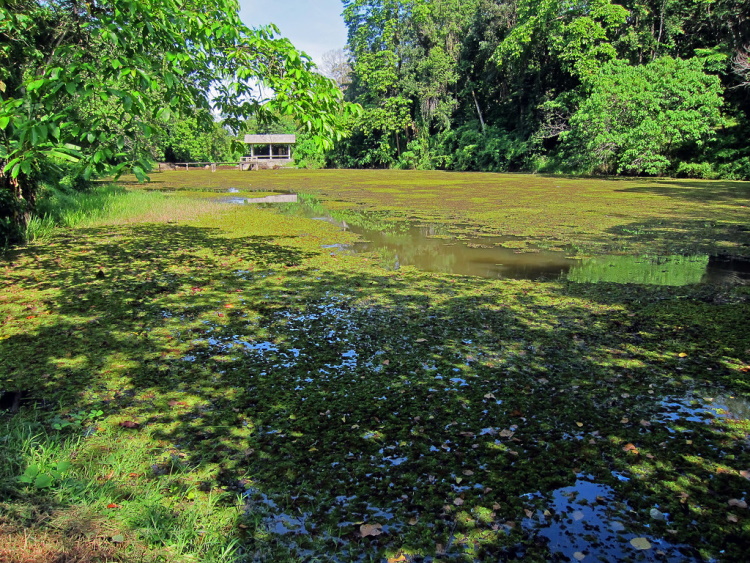
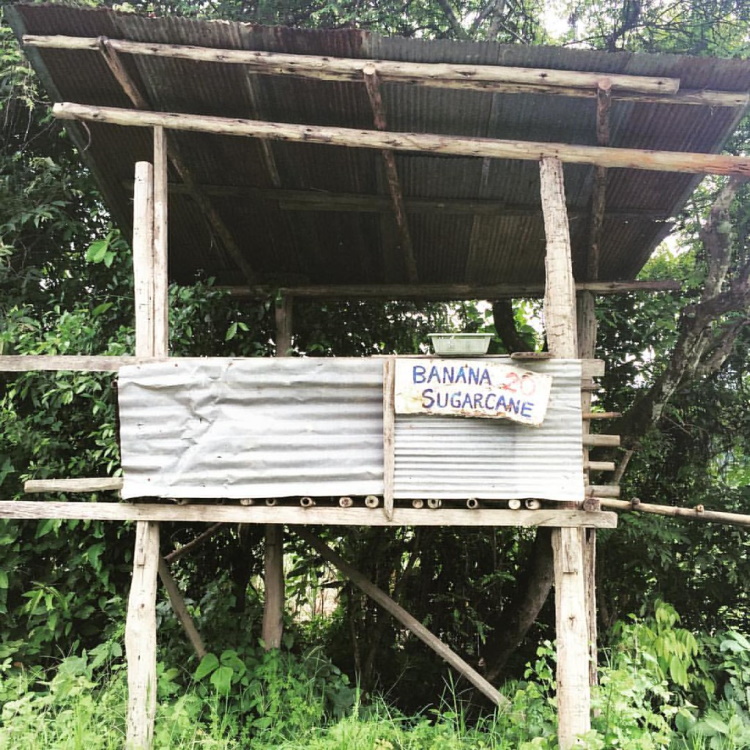
All mosquitoes are attracted to areas with still water as this is where they lay their eggs, and the mosquito larvae and pupae live in the water until they can fly. By no means does this water need to be clean though, which can be another potential transmission issue with bites from these foetid creatures.
Nor does this water need to be a natural body of water like a lake, pond, or swamp—if you are not careful don’t be too surprised to find larvae in your wet room or anywhere that water gathers for any length of time, including that half-bucket on your balcony—these blighters are not fussy.
The joys of the tropics!
When You Are Likely to Experience More of Them
So then—armed with the knowledge that mozzies like water, you can at least start to limit the chances of getting bitten to pieces by them.
You’ll just need to bear this in mind more if you are heading out to any rural or jungle areas where many of Thailand’s best resorts tend to be located, aside from those on the coast.

But don’t overlook things like fancy outdoor bars or restaurants with or without water features—there will still likely be plenty of mosquitoes lurking under and around the tables. The clever little blighters usually go for ankles, feet, and lower legs in order to be able to make any potential escape that much easier.

You don’t necessarily feel the bite but once you’ve suffered a few of them you might start to feel the itch which then turns into either a very mild or a bit more of a severe red bump.
And if you’ve ever tried to catch or squash one of these annoyingly perceptive creatures you’ll probably have been amazed at how quickly it just vanished from sight completely.
They usually just drop—which isn’t difficult as they can detect your intended move long before you even get close to them. It sounds disgusting but the best time to get them is when they have already been feeding and are full, satiated—and slow.
If you splat one of these rather aggressive insects after they’ve just done dinner you’ll know about it for sure. That’s also something to bear in mind, disgusting as it may sound—that might not be your blood that it is full of!
So water and outdoors both mean more mosquitoes—especially under the cover of the night when they are much harder to spot.
Prevention—How to Keep Those Blighters at Bay
There are various methods used in tropical countries to try and keep the mozzies at bay. Some of them make use of natural products that are known to repel the insects, and others employ more innovative approaches.
A couple of things that the insects don’t much like are:
- Wind (whether natural or from a fan)
- Air-conditioning (obviously one of the reasons you won’t see too many mozzies inside where A/C is used)
- Light (which makes it a lot easier to be spotted)
So the ideal place to relax without too much chance of any mozzies hankering after your ankles would be a brightly-lit, white room with air-con, fans, or a natural breeze strong enough to put them off your scent.

To be fair though, a lot of Thai restaurants, bars, and other entertainment-type venues are unlikely to have this somewhat unappealing décor or colour scheme which actually sounds a bit more like a hospital.
You are actually far more likely to find soft lighting and various exotic-looking colour schemes, water features, and even plants and trees—all intended to make customers feel more comfortable.
And they may indeed do just that—until the unwitting patrons’ ankles start itching like crazy.
In which case other methods may also be employed like the slow-burning, incense-type coil sticks that emanate various smells known to put the mozzies off. The good news here is that mozzies have a particularly keen sense of smell. Some of the most common aromas known to repel them include:
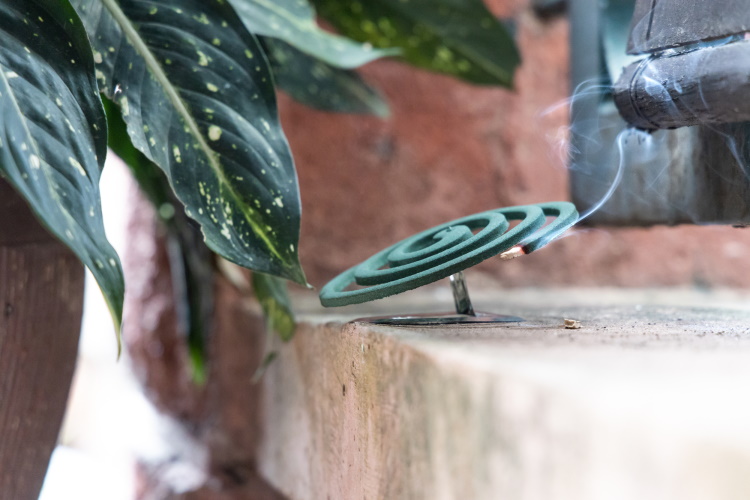
- Lemongrass, citronella, and citrus (a citrusy scent irritates mosquitoes’ sense of smell—lemongrass can be planted, and citronella oil can be applied directly to skin as a great natural deterrent)
- Garlic (garlic has an active ingredient known as allicin that changes your natural scent, thus masking it from mosquitoes. It can also be used as a repellent without ingestion by scattering cut slivers around outdoor areas, or combining it with oils and other liquid ingredients to make a spray which you may or may not want to apply directly to your skin)
- Lavender (Mozzies detest the deliciously overpowering scent of this purple flower, which has long been used in oil form for aromatherapy and can be applied to the skin directly)
- Eucalyptus (similarly to citronella, eucalyptus has a powerful smell that messes with the mosquitoes’ delicate sense of smell and direction, making it difficult for them to locate you as a food source. The plant itself as well as its oil work as a repellent and can be applied directly to the skin)
- Anything ‘minty’ (minty fragrances are highly unpleasant to a mosquito’s keen senses. Peppermint plants can apparently ward off these pesky insects to some degree, and again natural mint oils or balms can be applied directly to the skin.
There are plenty of other scents and odours that are probably less commonly-used but are still reported to be natural mosquito repellents. Some of these include marigold, basil, rosemary, and catnip, to name a few.
Other Preventative Measures
The ‘Shock Racket’: If you’ve ever spent any real length of time in Thailand you’ll have seen, or even used, one of those SUPER anti-mosquito zappers that looks something like a tennis racquet of sorts. They range from the downright cheap up to a couple of hundred baht, and are the best way to zap those blighters by way of electric shock.
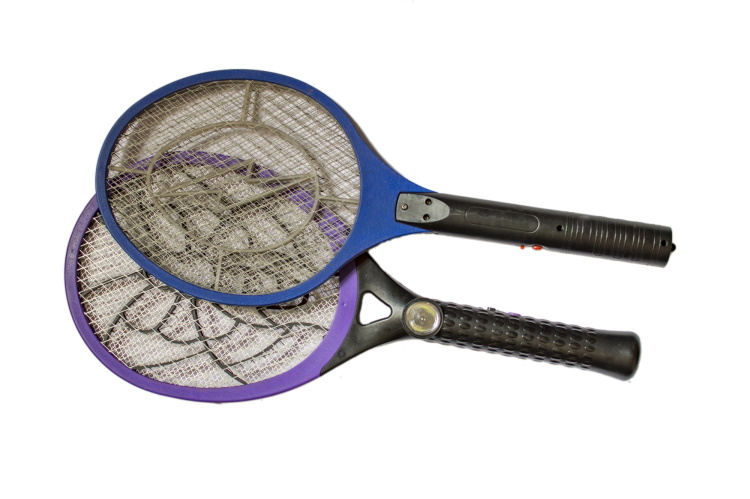
You plug the bat directly in and charge them when necessary, and they are without doubt the best way to catch any aggressive and persistent mozzy who just will not get the message to buzz off any other way. Not when dinner is calling.
Admittedly you might not be likely to carry one of these under your arm on a night out, but they do come in useful at home or in any outside area like a garden or a balcony.
There are various other items designed to either zap the insects when they come close (like the ones in the chip shops in the UK to catch flies) or lure them into a trap that then zaps them.
Some of these plug-in devices work by emanating various frequencies that interfere with the mozzies’ senses in a different way, confusing and annoying them enough to deter them. Remember, insects like mosquitoes operate with a kind of ‘antennae’ system which picks up the slightest movement in the immediate environment. This is why you find it so hard to squash the blighters—they can literally ‘feel’ you before you even get close.
Some of these devices use chemicals like ethyl pyruvate, which has a fruity smell and is used as a flavor agent in food. This chemical blocks any attraction that the mosquitoes may have to a potential ankle or arm. Another one of these devices uses a chemical known as cyclopentanone to attract the dreaded mosquito into a trap in much the same way that carbon dioxide attracts them to you.
There are obviously many types of insect repellent, some employing natural ingredients and others not—while some may be a mix. So you would be best to try and find one that suits your skin and what you deem suitable to put on it.
Treatment of Mosquito Bites
When a mosquito bites you, it pierces the skin using a proboscis—a kind of spike—to suck blood. That’s one issue. The other is that you end up with traces of the insect’s saliva on your skin, which causes a reaction usually resulting in a swollen bump that can vary greatly in size from person to person (depending on how much they like your blood type). And then there will be some itching.
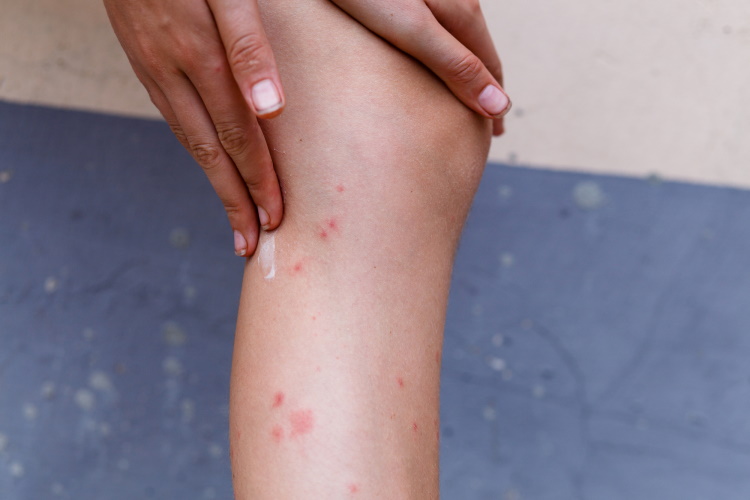
Some people have very mild or even non-existent reactions to bites, while others may suffer more swelling, soreness, and redness. There are numerous suggested immediate remedies like washing with soap and water, applying ice packs, as well as using a baking soda and water mix which should help with the itching.
Over-the-counter pharmaceutical options are most likely antihistamine-type creams to help relieve itching.
And although it may be easier said than done, you should try your best not to scratch but just get something soothing on there as quickly as you can. Vinegar would also be an option but obviously it’s not for everyone, and many Thais tend to use balms like Tiger Balm and Golden Cup (used for sprains, muscles pains etc., but also containing cooling, soothing type ingredients like camphor etc.).
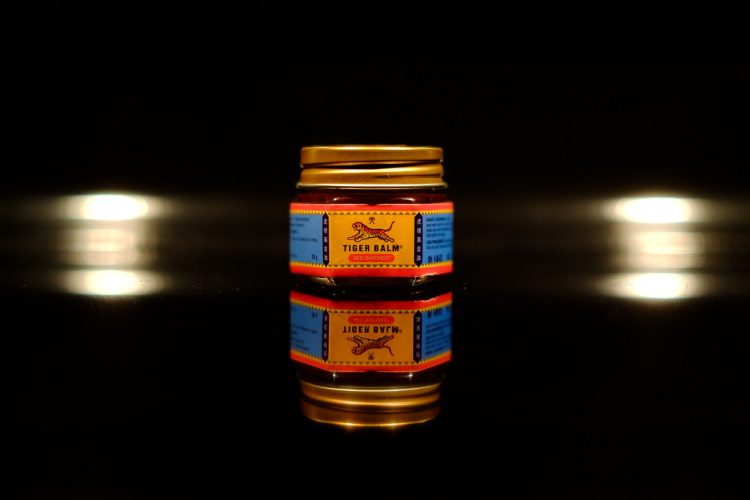
The Bottom Line
Thailand has mosquitoes—lots of them. But try not to sweat it too much as many people can enjoy their holiday without even noticing a mozzy or a bite. Be cautious though, especially around water and outdoor natural areas, and plan for your trip. Bring anything you normally use on your skin for any reason that contains any of the ingredients known to repel or treat mozzies and bites. If you are one of the lucky ones the dreaded insects will leave you alone, but if you are unfortunate enough to start attracting them as soon as you set foot on Thai soil then be sure to find something that suits your skin that you can ‘wear’ during your holiday and all will be well. Knowledge is power as they say—so come prepared!

Mark Philip is a writer and lifestyle enthusiast from the Midlands in the U.K. With a background in martial arts and fitness, Mark upped sticks and headed out to Bangkok to delve a bit deeper into the art of Thai Boxing way back in the 2000s, starting to write initially to fund his daily training and escape the rigours of ESL teaching. Since then Mark has authored e-books, articles, and blogs across a wide range of topics for commercial, educational, factual, health & fitness, lifestyle, wellness, and leisure-based purposes.





